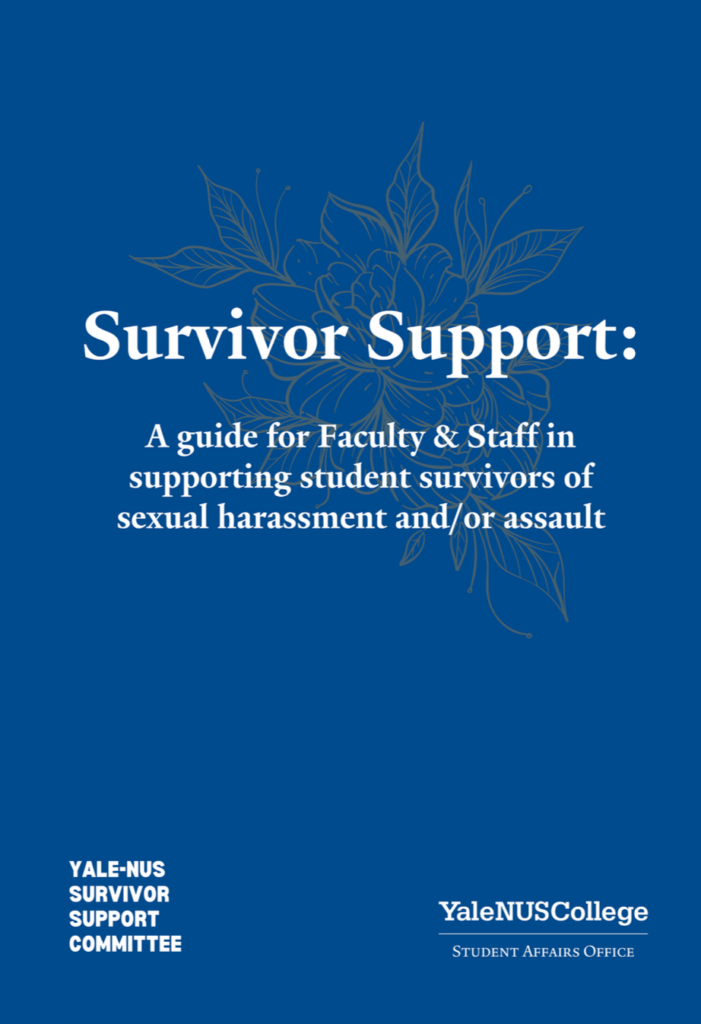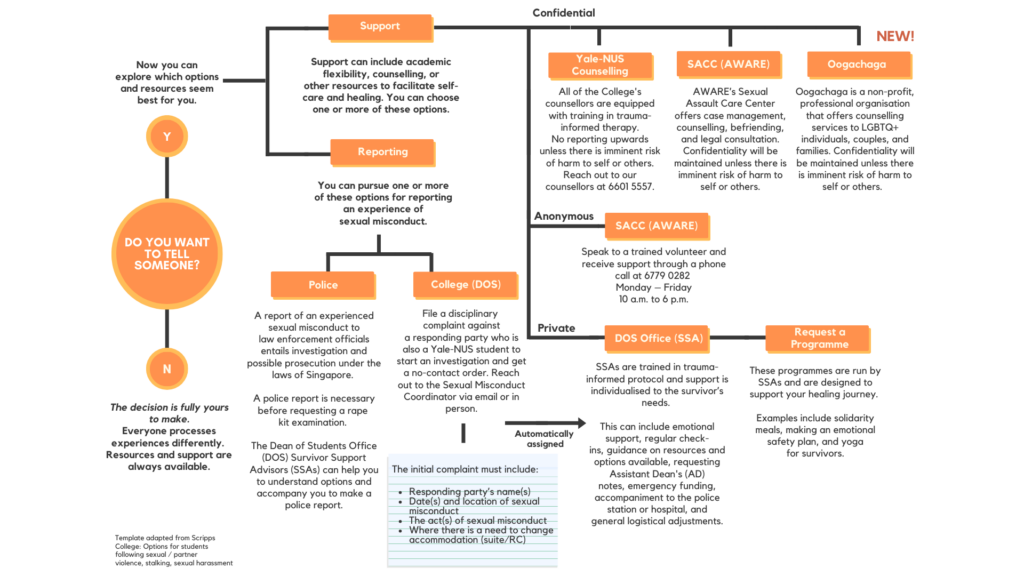Strategies for helping a friend
- Listen and demonstrate that you believe them
Be sure your friend knows you will be supportive. It is important for your friend to know they are believed and not judged. The best way to make this clear is to say it directly: “I believe what you are telling me, and I do not judge you for what you are going through.” - Validate your friends’ experience
Say “I believe you.” It isn’t up to you to understand or pass judgment on the details involved. Scepticism or labelling your friend’s experience is not helpful and can often be re-traumatising. - Let your friend lead the conversation
Allow your friend to determine the pace and focus of the conversation instead of trying to define what the experience is for them. The most important support you can provide is to allow your friend to express their concerns and come to terms with their experience. Facing a sexual assault or harassment is a profoundly disempowering experience. An essential part of support is encouraging your friend to maintain control over what happens next. - Be well informed about available resources.
Spend some time reading through the resources on this website to learn what options your friend might have, and which might be relevant when speaking with your friend. But be sure to let your friend be the one to make decisions about who to talk to, what services to access, and what actions to take next. You may disagree with some decisions but the important step is to listen and not judge. Help them understand the available options, and let them be the one to decide how to proceed.
One example of an on-campus resource is the Kingfishers for Consent workshop, ‘Listen & Believe’. You may also reach out to any of the members of the Kingfishers for Consent for more information. - Be assuring
It is not your place to determine or to cast fault on your friend. Avoid judgmental questions and statements. Remember that your friend may already be blaming themselves. - Take care of yourself
Remember, you too can call/seek for support if you are overwhelmed. Reach out to a College Psychologist/Counsellor to talk through your concerns.
Practise Self-Care
If you are supporting your friend, be sure to take care of yourself.
- Be aware of your own feelings
In the process of helping your friend you may feel frightened, or experience feelings of hurt, anger, guilt and anxiety. Such feelings are understandable, but your reactions may feel surprising, confusing, or overwhelming. - Know and respect your own limits
There is only so much you can do to help your friend. You may feel like you want to take action (for example, confront the accused person); however, this could exacerbate a situation and cause further issues for your friend. Remember that because the situation is potentially under investigation as a disciplinary or criminal case, your decision to intervene may result in interfering with the investigation process. More worthy of your attention is providing support and compassion to your friend. Try not to offer more than you can give, and encourage your friend to seek additional support. - Remember that it was not your fault
You may feel guilty, wondering if you could have done something to prevent your friend from being hurt. Remind yourself that responsibility is held by the person(s) who committed the acts of sexual misconduct. - Do not be afraid to ask for help.
Find someone other than your friend to talk with about your feelings, for example, a College Psychologist or Counsellor. Talking with someone else can help you understand where you are emotionally and give you a clearer perspective on the situation. - Keep the rest of your life on track
Do not forget to take care of yourself. This will help both you and your friend.
For Faculty and Staff
- Listen and demonstrate that you believe them.
- Refrain from asking about the details of the incident
- Faculty can be supportive by offering options and flexibility in academic workload.
- Refer the student to available resources on and off-campus. It is not appropriate to become an informal counsellor.
- Reach out to Ashley for questions on how to support your student.
Academic Support
Following incidences of assault and trauma, people often experience a range of reactions that could affect their ability to perform well at school or work.
A student experiencing difficulties coping with work may want to consider reducing their academic workload for the semester.
The campus may support change in academic requirements such as:
- Dropping classes
- Changing classes
- Withdrawing for a semester
Survivor Support Booklet
A guide for Faculty and Staff in supporting student survivors of sexual harassment and/or assault
By Yale-NUS Survivor Support Committee






